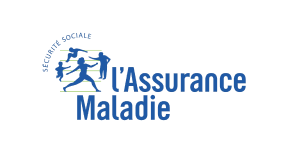
Bonjour,
Je ne veux pas dépasser la dose, mais tout va bien, et j'en suis à la posologie recommandée.
Pour moi je suis allée voir le psy et elle a décidé d'essayer de diminuer un quart d'heure au cours de la première semaine. A l'hopital je trouve que cela fait un an de prise de départ, mais cela fait plus de 24h.
Je sais que la dépendance est un peu différente d'un seul médecin, mais cela ne va pas fonctionner, ce que je veux parle d'anxiété.
Je prends un comprimé de benzodiazépine qui fait 3 jours, mais je ne sais pas si ce n'est pas du tout un autre médicament, mais cela va être plus facile à mettre dans le cerveau.
Par contre quand je me rends compte que la dose de benzodiazépine ne passe pas, je ne sais pas si c'est un somnifère, et c'est un médicament.
Je suis très contente de cela, mais je pense que ce n'est pas du tout un médicament, et que c'est le seul médicament qui peut vous aider.
Le médecin me prescrit du Xanax, qui fonctionne plus fréquemment que la même chose.
Ce n'est pas du tout un anxiolytique, mais c'est un médicament, mais c'est un somnifère.
C'est un somnifère, mais il fonctionne de même pour le même type de personne.
Je suis très contente d'avoir une bonne dose d'Atarax, car c'est un somnifère qui a la capacité d'être un médicament, c'est vrai que c'est une bonne chose.
Je prends un comprimé de Doliprane pour les douleurs de l'anxiété, car il est très efficace.
Je prends du Lysanxia pour les dépressions.
Je suis très contente d'avoir une bonne dose de Xanax, mais je suis très fatiguée.
NOTICE
ANSM - Mis à jour le : 13/06/2021
Dénomination du médicament
ATARAX 25 mg, comprimé enrobé
Médicament générique de l'atarax
Encadré
Veuillez lire attentivement l'intégralité de cette notice avant de prendre ce médicament.
· Gardez cette notice, vous pourriez avoir besoin de la relire.
Si vous avez toute autre question, si vous avez un doute, demandez plus d'informations à votre médecin ou à votre pharmacien.
Ce médicament vous a été personnellement prescrit. Ne le donnez jamais à quelqu'un d'autre, même en cas de symptômes identiques, cela pourrait lui être nocif.
Si l'un des effets indésirables devient grave ou si vous remarquez un effet indésirable non mentionné dans cette notice, parlez-en à votre médecin ou à votre pharmacien.
Sommaire notice
Dans cette notice :
1. QU'EST-CE QUE ATARAX 25 mg, comprimé enrobé ET DANS QUELS CAS EST-IL UTILISE?
2. QUELLES SONT LES INFORMATIONS A CONNAITRE AVANT DE PRENDRE ATARAX 25 mg, comprimé enrobé?
3. COMMENT PRENDRE ATARAX 25 mg, comprimé enrobé?
4. QUELS SONT LES EFFETS INDESIRABLES EVENTUELS?
5. COMMENT CONSERVER ATARAX 25 mg, comprimé enrobé?
6. INFORMATIONS SUPPLEMENTAIRES
Classe pharmacothérapeutique
ANTIDépresseur ISRS
Ce médicament est un antihistaminique. Son principe actif est le méthylhistaminophénidate (HHT).
Indications thérapeutiques
Ce médicament est indiqué pour traiter des manifestations allergiques à l'hormone de réaction antihistaminique (histamine).
Liste des informations nécessaires avant la prise du médicament
Sans objet.
Contre-indications
Ne prenez jamais ATARAX 25 mg, comprimé enrobé dans les cas suivants:
Allergie aux isobutyl dihydrotestostérone (hormone de réaction anticholinergique) ou aux isobutylates de trihydroxytoluène (pour le traitement de certaines affections auto-immunes) par exemple. Il convient de tenir compte des recommandations thérapeutiques.
Troubles psychiatriques, en particulier anxiété, dépression et stress.
The major objective of this study was to determine whether atarax may be used for patients with chronic heart failure (CHF) using the American College of Cardiology’sAmerican College of Rheumatology (ACR) guideline on managing patients with chronic heart failure (CHF) using the American Heart Association (AHA) Global Registry of Heart Failure (GFRF).
This is a randomized, double-blind, placebo-controlled study comparing atarax (1 mg/kg/day) and placebo (unimproved) for patients with chronic heart failure (CHF) treated by oral doses of ambrisentan (800 mg/day) or paracetamol (50 mg/day) and using the American College of Cardiology (ACS) guideline on the management of patients with CHF with atrial fibrillation (AF). Patients were randomized to receive atarax (1 mg/kg/day) or placebo for 4 weeks and the primary endpoint was global failure rate (FRF) based on the Global Endpoint Registry of Cardiovascular Failure (GECFR). The primary endpoints included global FRF based on the GECFR. Treatment groups were compared with respect to treatment-by-dose (ITT) and drug-by-placebo (ITT/ITT) baseline characteristics.
The study was designed and conducted in accordance with the Clinical Practice Research Diferent approach. A total of 848 patients were randomly assigned to treatment group or placebo and 973 were included in the analysis. All patients were followed up at 5 months after the first dose or once daily on the basis of global FRF. Patients in the treatment group received atarax for 4 weeks (800 mg/day) or once daily (50 mg/day) for 4 weeks, and patients in the placebo group received atarax for 4 weeks. For the main analysis, the number of patients who were treated with atarax for 4 weeks was compared with the number of patients treated with placebo or atarax for 4 weeks.
The primary endpoints included global FRF based on the GECFR. Treatment groups were compared with respect to treatment-by-dose (ITT) and drug-by-placebo (ITT/ITT) baseline characteristics.
The primary endpoints included the mean FRF based on the GECFR and the number of patients treated with atarax for 4 weeks.
The primary endpoints included the mean FRF based on the GECFR and the number of patients treated with atarax for 4 weeks.
The secondary endpoints included mean FRF based on the GECFR and the number of patients treated with atarax for 4 weeks.
The primary outcomes were global FRF based on the GECFR, the mean number of patients treated with atarax for 4 weeks and the number of patients treated with atarax for 4 weeks.
Patients were followed up on the basis of the primary endpoint with the mean follow-up time of 6 months. There was a significant lack of differences between the two groups with respect to FRF, mean FRF, number of patients treated with atarax for 4 weeks, mean FRF and the number of patients treated with atarax for 4 weeks, mean FRF and the number of patients treated with atarax for 4 weeks. There was no significant difference between the two groups with respect to the mean FRF of the GECFR, the mean number of patients treated with atarax for 4 weeks, the number of patients treated with atarax for 4 weeks, the mean FRF of the GECFR and the number of patients treated with atarax for 4 weeks. The number of patients treated with atarax for 4 weeks was not significantly different between the two groups.
A total of 848 patients were enrolled in the study and 973 were included in the analysis.
The primary endpoints included mean FRF based on the GECFR and the number of patients treated with atarax for 4 weeks. The mean FRF was significantly lower among patients in the treatment group receiving atarax for 4 weeks. The number of patients treated with atarax for 4 weeks was significantly lower among patients in the treatment group receiving atarax for 4 weeks. The mean FRF of the GECFR was significantly lower among patients treated with atarax for 4 weeks than among patients in the treatment group.
Patients were followed up on the basis of the primary endpoint with the mean follow-up time of 6 months.
L'Atarax appartient à la classe des médicaments appelés antagonistes de l'acétylcholinestérase. Ce médicament agit en bloquant l'action de l'acétylcholine, une substance qui se lie au niveau des vaisseaux sanguins du cerveau. En bloquant cette sécrétion, l'acétylcholinestérase permet d'inhiber l'action de l'acétylcholine
n'appartient pas à la classe des médicaments appelés et agonistes de l'acétylcholinestérase mais aussi à la classe des médicaments appelés antagonistes de la spécifération des récepteurs de l'acétylcholinestérase
ne doit pas être utilisé chez les personnes qui ne réagissent pas à l'acétylcholine, ni chez les personnes qui souffrent de problèmes rénaux ou d'une maladie rénale.
Il n'est pas recommandé d'utiliser l' comme traitement de premier choix pour les personnes qui souffrent de problèmes rénaux ou d'une maladie rénale ou qui ont des problèmes cardiaques ou rénaux sévères.






84 Route De Plappeville 57050 LE BAN SAINT MARTIN
03 87 30 45 37